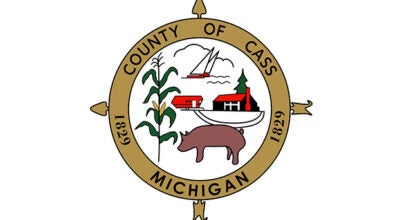Fair affected by swine flu outbreak
Published 8:47 am Monday, August 22, 2016
A person attending the Cass County Fair earlier this month may have contracted a case of swine flu from one of the pigs exhibited there, according to officials from the Michigan Departments of Health and Human Services and Agriculture and Rural Development.
In a joint media release by the two organizations, state officials announced that eight people in Michigan have been infected with Influenza A H3N2v — a flu virus variant that is responsible for causing the flu with pigs that can infect humans who are in close proximity to them. These cases were all connected to infected pigs exhibited at fairs in Cass, Muskegon and Ingham counties during July and August.
One of these infected people is believed to have contracted the virus at either the Cass or Ingham county fairs, said Jennifer Eisner, a spokeswoman with the MDHHS.
The department could not verify which county the infected person resides, nor confirm where specifically they may have contracted the virus.
There were two confirmed cases of H3N2v infections occurring in Ingham and another five in Muskegon, Eisner said.
An official with the Van Buren Cass District Health Department said that there are no Cass County residents that are confirmed to have contracted the H3N2 virus, though doctors are currently testing for a possible infection in one resident.
According to Jennifer Holton with MDARD, 20 pigs exhibited at the Cass County Fair tested positive for the H3N2v virus.
Symptoms of human infection from the virus include fever and respiratory symptoms, such as cough and runny nose, as well as body aches, nausea, vomiting or diarrhea. Some populations are at higher risk of developing complications if they get influenza, including children younger than 5 years of age, people 65 years of age and older, pregnant women, and people with certain long-term health conditions like asthma, diabetes, heart disease, weakened immune systems and neurological or neurodevelopmental conditions.
Human infection from the virus is thought to happen when an infected pig coughs or sneezes and droplets with influenza virus land in someone’s nose or mouth, or are inhaled. There also is some evidence that the virus might spread by someone touching something that has virus on it and then touching his or her mouth or nose.
Typically, the virus has an incubation period, or time it takes from infection to illness, of two days, though there have been cases where it has taken up to 10 days, Eisner said.
As the Cass County Fair wrapped up Aug. 6, attendees in contact with swine during the fair who have not yet exhibited flu-like symptoms are likely not infected, due to the fact the 10-day incubation period has passed, Eisner said.
For more information about H3N2v, visit www.cdc.gov/flu/swineflu/h3n2v-basics.htm.






